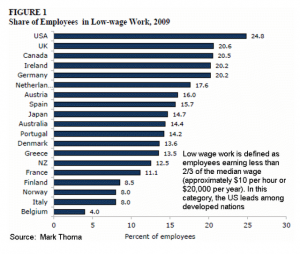
This morning I got this note from Co-Intelligence Institute board member Lyn Manju Bazzell, who lives in Ashland, a town in southern Oregon's Rogue Valley:
“A little news from the Rogue Valley: went to a meeting with 200 people last night. It was a panel of 2 Tea Party leaders and 2 Occupy leaders in the Rogue Valley answering questions from the audience. A very positive move for our area! Jeff Golden put it together with some help and there is a desire for ongoing conversations for the Rogue Valley. It is an outgrowth of one of his Immense Possibilities episodes that included these 4 people. Yea for Jeff – he's a mensch!
“Here are some areas of common ground that were shared by the panel: Personal liberty issues; Homeland Security; Election reform – concern about voting machines; lobbying; self-reliance; importance of local action; concentration of power in the hands of the elites (a bit of difference re: who is really holding the power, with the Tea Party focused on government and Occupy on big business, but the identification of lobbying as an issues offers an open window into a deeper discussion; size of the military and our aggressive global orientation (this was a surprise to me for Tea Partiers).”
An hour later I received the following article from Lance Bisaccia:
Tea party, Occupy supporters find they have many similarities
In their first public outing together, tea party and Occupy backers — and an audience of 200 — found a lot of common ground on the issue that corporations, lobbyists, the military and the federal government have a huge amount of power, are “bought” — and aren't very responsive to the needs of the average person.








